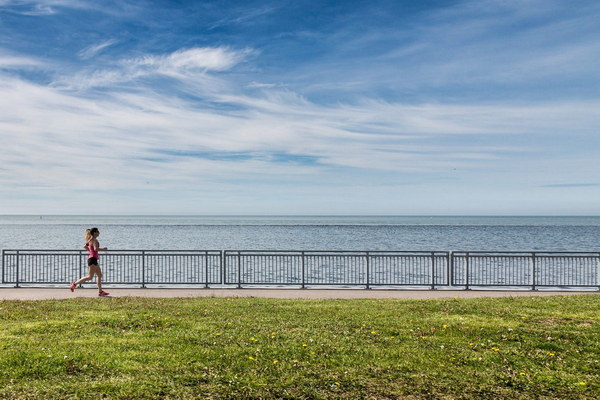Age-Defying Health Tips How to Maintain Physical Well-being in Your Golden Years
As we navigate through the journey of life, the golden years are a time when maintaining physical well-being becomes increasingly important. Aging brings its own set of challenges, but with the right approach, seniors can enjoy a vibrant and healthy lifestyle. Here are some essential tips to help you maintain your physical well-being as you age.
1. Stay Active
Regular physical activity is crucial for maintaining strength, flexibility, and overall health. Engage in activities that you enjoy, whether it's walking, swimming, gardening, or yoga. Aim for at least 150 minutes of moderate aerobic exercise or 75 minutes of vigorous activity each week, along with muscle-strengthening exercises on two or more days a week.
2. Nutritious Diet
A balanced diet rich in fruits, vegetables, whole grains, lean proteins, and healthy fats is essential for aging gracefully. As we get older, our nutritional needs change, so it's important to adapt your diet to include more fiber, vitamins, and minerals. Consult with a healthcare professional or a registered dietitian to tailor a diet plan that suits your specific needs.
3. Stay Hydrated
Adequate hydration is vital for maintaining bodily functions. Older adults are at a higher risk of dehydration due to a decrease in thirst sensation and a reduction in kidney function. Drink plenty of fluids throughout the day, and if you have trouble remembering, set reminders or keep a water bottle nearby.
4. Regular Medical Check-ups
Regular health screenings and check-ups are essential to detect and manage any health issues early. Don't skip annual physicals, and discuss any concerns with your healthcare provider. Keeping up with vaccinations, such as the flu shot and shingles vaccine, can also help prevent illnesses.

5. Mental Stimulation
Engaging in mentally stimulating activities can help maintain cognitive health. Read books, play puzzles, learn a new language, or take up a hobby. Social interaction is also beneficial for mental health, so stay connected with friends and family or join social groups to keep your mind active and engaged.
6. Quality Sleep
Good quality sleep is crucial for overall health. As we age, sleep patterns may change, leading to difficulties falling asleep or staying asleep. Establish a regular sleep routine, create a comfortable sleep environment, and avoid stimulants like caffeine in the evening. If you have persistent sleep issues, consult a healthcare provider.
7. Manage Chronic Conditions
If you have chronic conditions such as diabetes, hypertension, or arthritis, it's important to manage them effectively. Follow your healthcare provider's advice, take medications as prescribed, and make lifestyle changes if necessary. Regular follow-up appointments will help you stay on top of your health.
8. Stay Social
Social connections are not only beneficial for mental health but also for physical health. Seniors who maintain social networks tend to have lower levels of stress and better overall health. Reach out to friends, join community groups, or volunteer to stay socially active.
9. Mindful Relaxation
Practice relaxation techniques such as deep breathing, meditation, or tai chi to reduce stress and promote well-being. These practices can also help improve sleep and reduce the risk of chronic conditions.
10. Stay Positive
A positive outlook can go a long way in maintaining physical and mental health. Surround yourself with positive influences, cultivate gratitude, and focus on the things you enjoy and are grateful for in your life.
In conclusion, maintaining physical well-being in your golden years is a combination of lifestyle choices, regular healthcare, and a positive mindset. By following these tips, you can enjoy a fulfilling and healthy retirement. Remember, it's never too late to make positive changes to your health and well-being.









